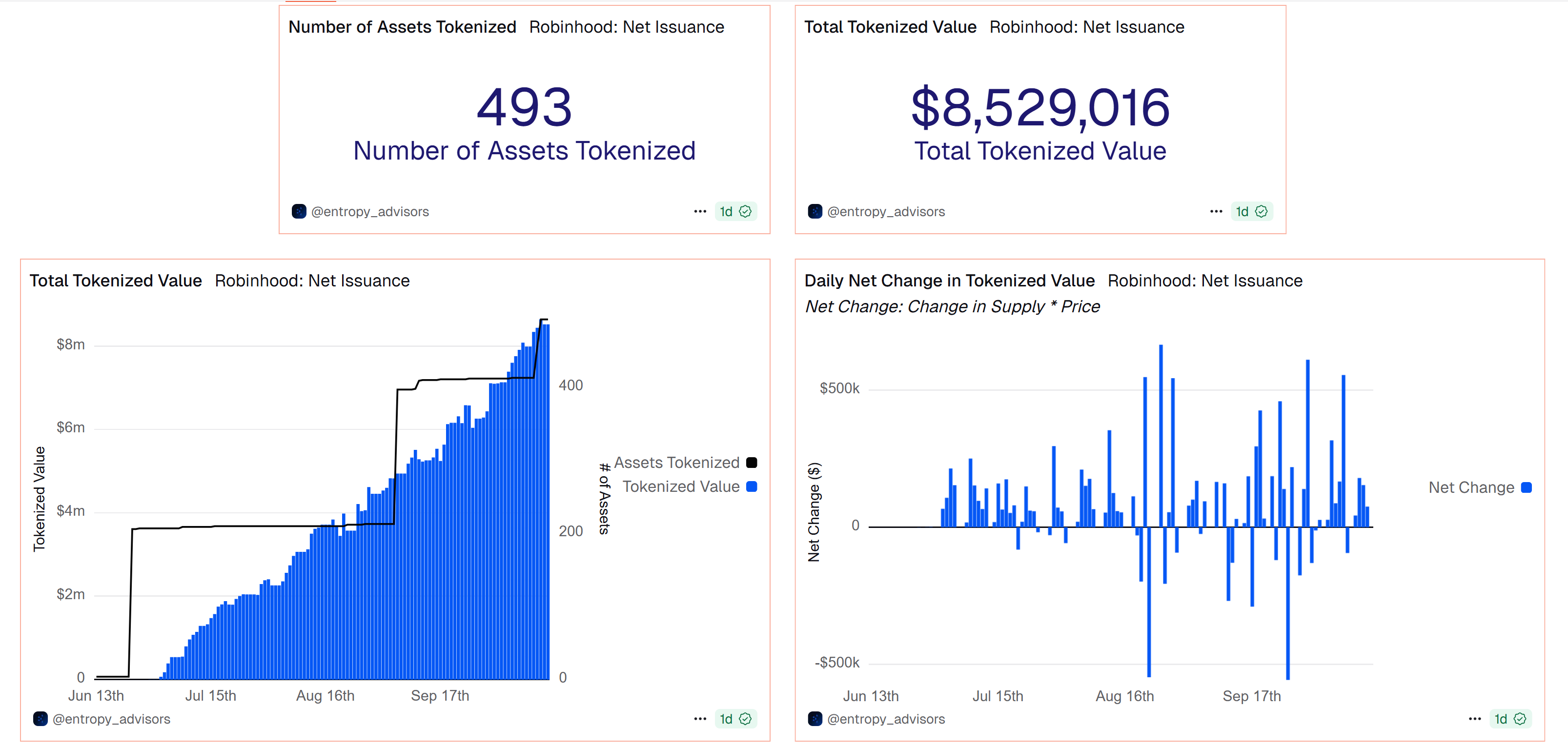
Robinhood has recently expanded its tokenization initiative on the Arbitrum blockchain, with the addition of 80 new stock tokens in the past few days, bringing the total to nearly 500.
According to Dune Analytics, Robinhood has tokenized 493 assets valued at over $8.5 million. The cumulative mint volume has crossed $19.3 million, while around $11.5 million has been burned, indicating a vibrant trading environment.
Stocks make up nearly 70% of all tokenized assets, followed by ETFs at about 24%, and smaller portions allocated to commodities, crypto ETFs, and US Treasuries.
The latest tokens include Galaxy (GLXY), Webull (BULL), and Synopsys (SNPS), noted research analyst Tom Wan. “Robinhood EU users now have an extensive selection of US Stocks, Equities, and ETFs through tokenization,” he remarked.
 Robinhood has tokenized 493 assets. Source: Dune Analytics
Robinhood has tokenized 493 assets. Source: Dune Analytics
In June, Robinhood launched a tokenizing-focused layer-2 blockchain on Arbitrum for EU users to trade tokenized US stocks and ETFs as part of its real-world asset (RWA) expansion. The stock tokens reflect the prices of publicly traded US securities but do not provide direct ownership of the underlying shares; they function as blockchain-based derivatives regulated under MiFID II (Markets in Financial Instruments Directive II).
Robinhood also claims these stock tokens provide 24-hour market access with no hidden fees, beyond a 0.1% FX charge, enabling investment with as little as 1 euro ($1.17).
Nonetheless, the initiative has faced scrutiny. In July, the Bank of Lithuania requested clarification on the structure of the tokens. Tenev stated that the company welcomes the review.
Robinhood’s tokenization push comes just after the brokerage introduced micro futures for Bitcoin (BTC), XRP, and Solana (SOL). Earlier this year, the firm acquired the Canadian crypto platform WonderFi for $179 million, broadening its global reach. Additionally, Robinhood is advocating for clearer tokenization regulations in the US, having submitted a proposal to the Securities and Exchange Commission to establish a unified framework governing RWAs.



